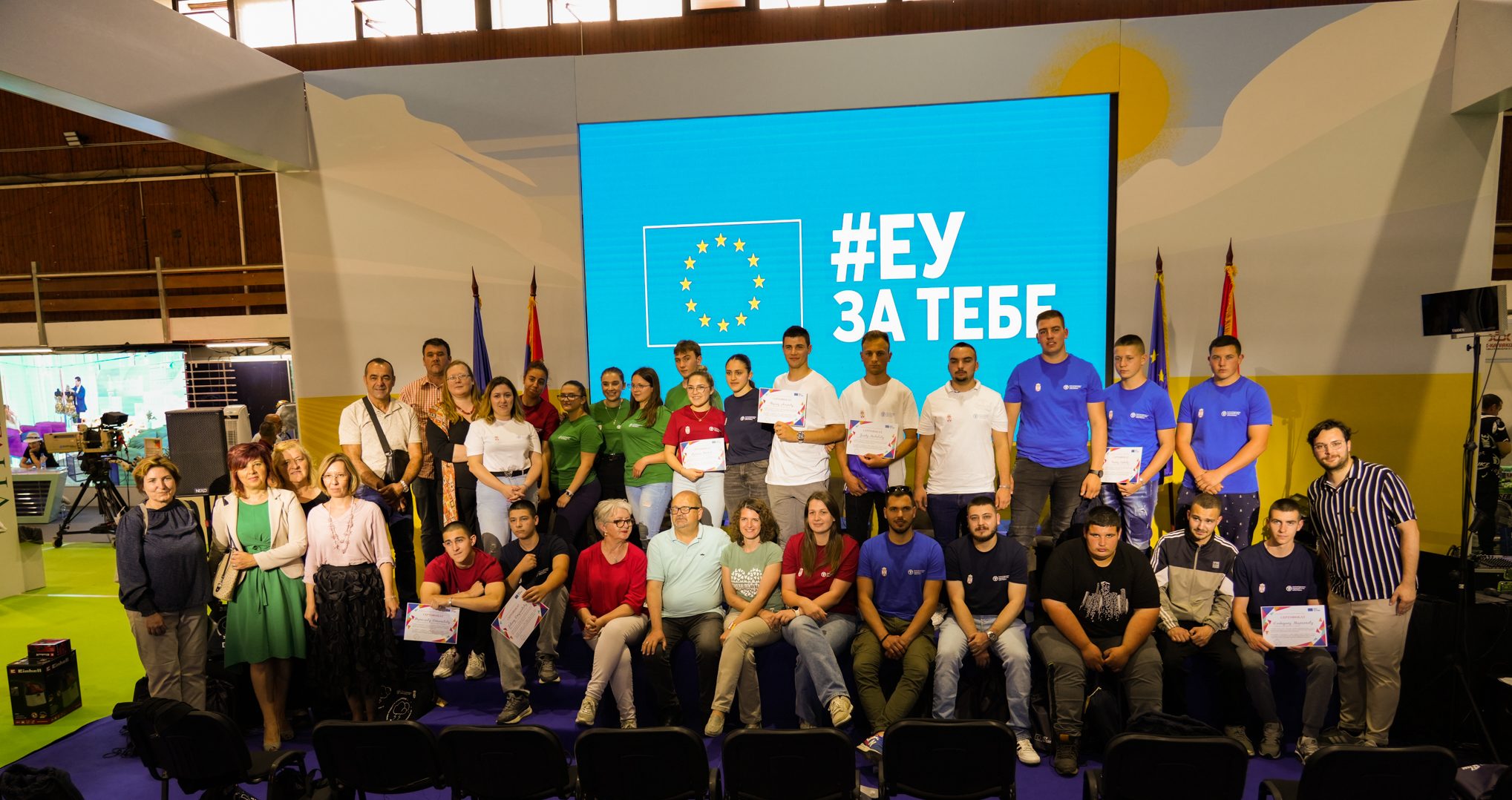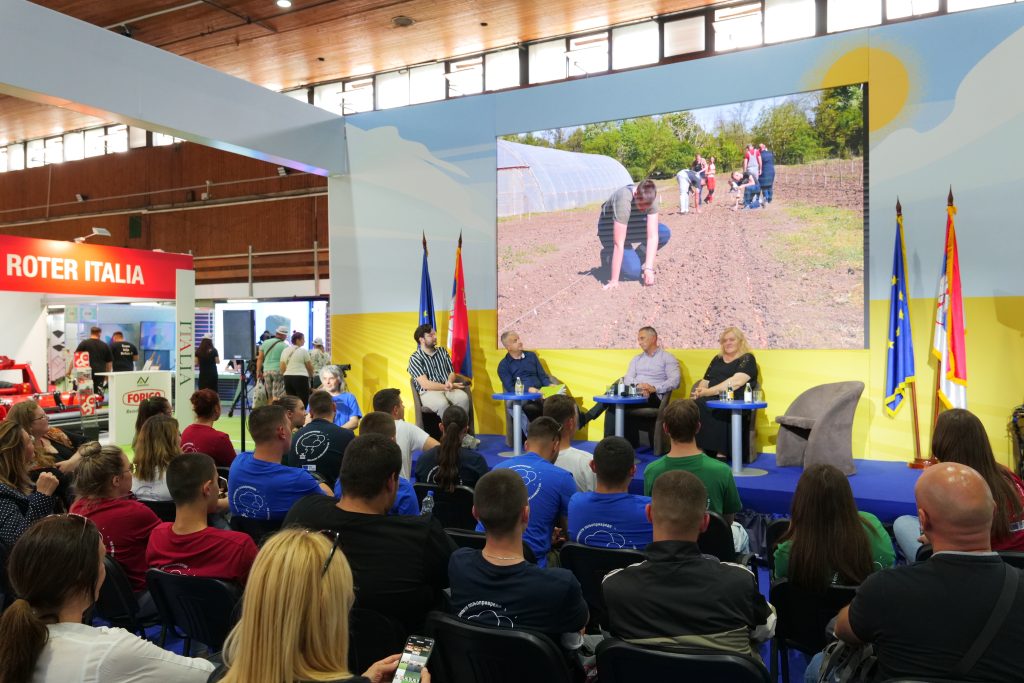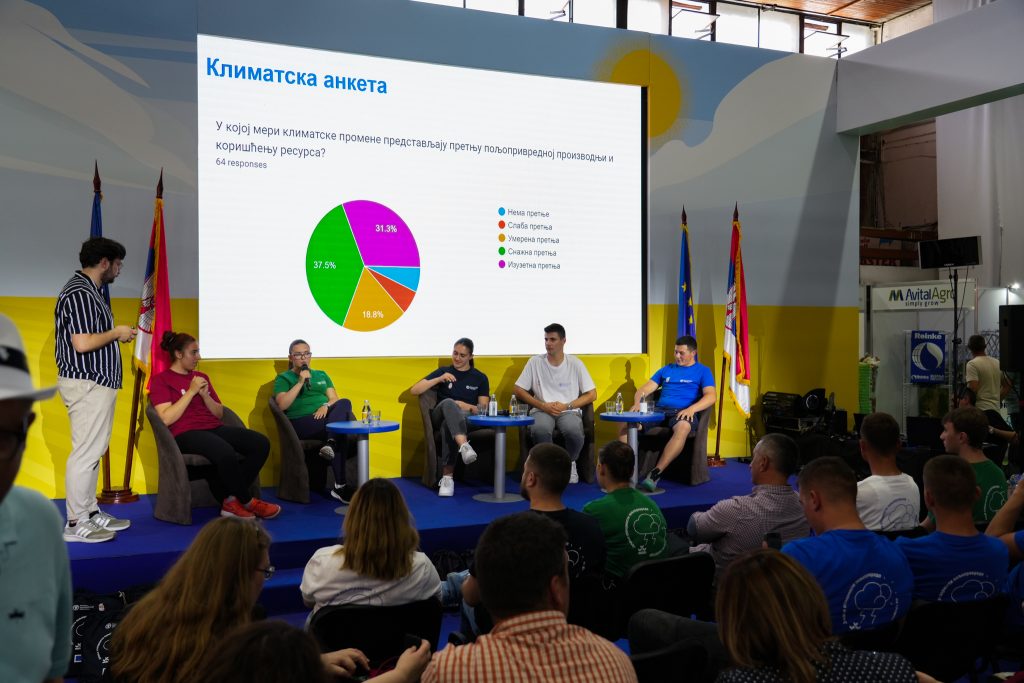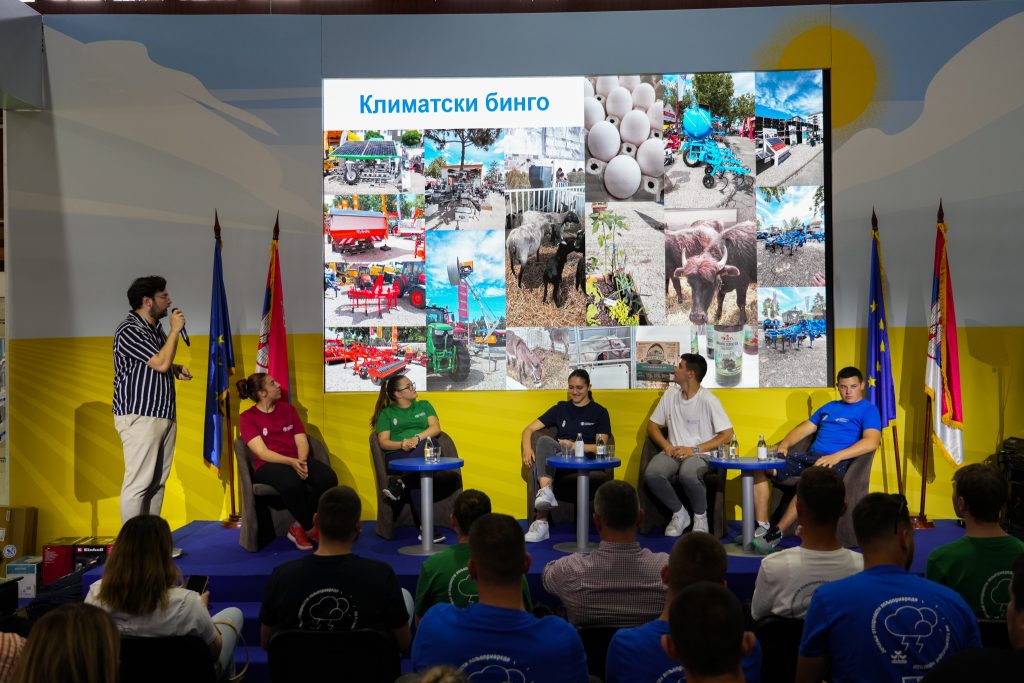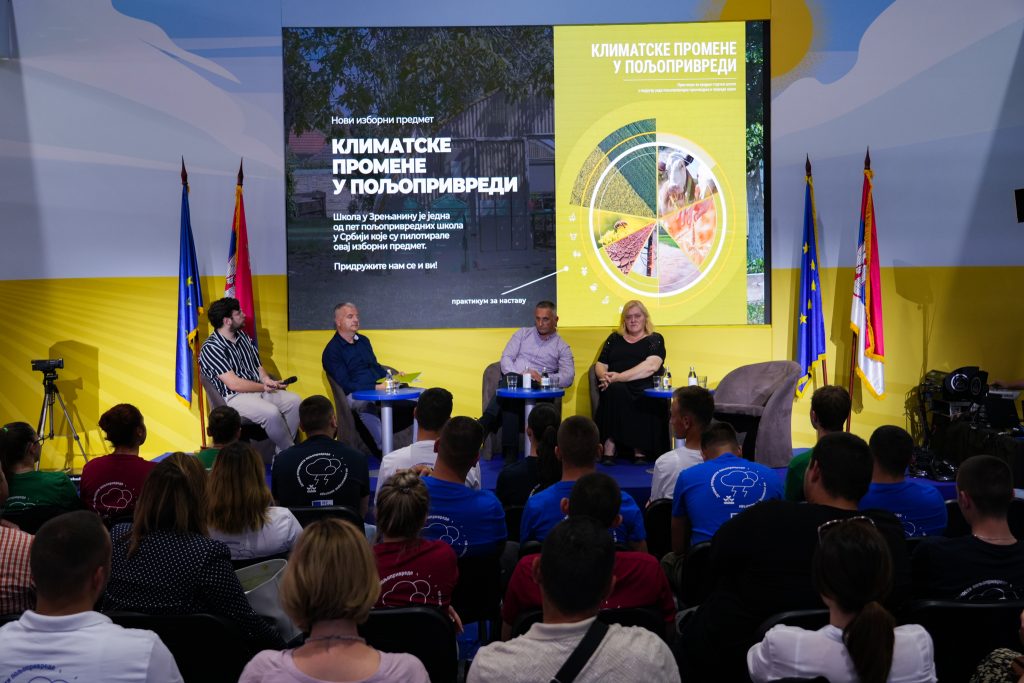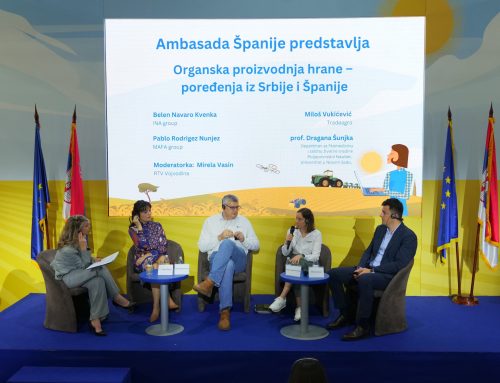Climate change in agriculture – is the name of the optional subject, which has been offered in five vocational agricultural schools in Serbia starting this year. At the Agricultural Fair, at the EU Pavilion, teachers and students, involved in the study of this topic, spoke about it.
Until now, the topic of climate change has not been sufficiently present in schools, and there was a need for such a subject, according to Svetlana Mladenović, Principal of the Agricultural and Chemical School in Kraljevo.
“This subject consists of four modules: climatology – for students to find out what climate is, then the impact of climate on plant production, the impact of climate on livestock production, as well as a module on adaptive measures”, the principal explained.
During the first school year when this subject was introduced, five educational institutions decided to include it in the curriculum – these are schools from Kraljevo, Požega, Sombor, Požarevac and Zrenjanin.
Principal Mladenović believes that the young people who got involved in the study of climate phenomena in agriculture this year will successfully spread knowledge and awareness about this topic among their peers and people around them. Other teachers confirm that students diligently participate in interactive classes.
“More attention should be focused on this topic in the future, and the topic of climate change should become more important”, said one of the high school students, who also participated in the Climate Quest, at the Agricultural Fair. What is Climate Quest?
Five teams of students participated in the climate quest at the Agricultural Fair – applying knowledge from the classroom. On that occasion, they visited the fair stands, observed examples of adaptation measures, mechanization and climate-smart technology… Climate Quest includes learning through play and it bring a strong message that acquiring new knowledge and skills is important, in order to respond to the climate change risks. It is also a confirmation of the good direction of the reform of the school system for future agriculture.
The optional subject Climate Change in Agriculture is available to all secondary agricultural vocational schools, while the teachers have gone through accredited training during the preparatory period. A new handbook on climate change in agriculture, intended for high school students, has also been prepared.
The subject itself was created as an activity of the EU-funded project Strengthening Disaster Resilience in Agriculture, implemented by the Food and Agriculture Organization of the United Nations (FAO) in cooperation with the Ministry of Agriculture, Forestry and Water Management of the Republic of Serbia.
The main goal of the project is to timely identify potential risks and carry out the necessary assessments, while introducing climate smart practices, in order to ensure sustainable rural development in the country. Addressing the challenge requires a comprehensive approach, which includes disaster risk reduction, climate change adaptation while promoting sustainable agricultural practices at all levels.
To make agriculture in Serbia more resilient to climate change, the European Union donated EUR 2.5 million – for this project only.
The European Union supported Serbian agriculture with more than EUR 150 million before the start of IPARD II Programme with the allocation of EUR 175 of EU support. The ongoing IPARD III Programme will bring even more opportunities for Serbian farmers and another EUR 288 million of EU support. The main objectives of IPARD support include increasing the competitiveness of Serbian farmers, preserving the environment and biodiversity, supporting rural businesses and communities, and developing rural infrastructure.

